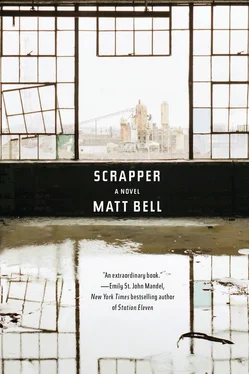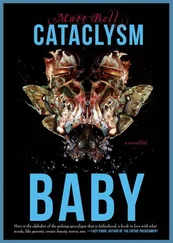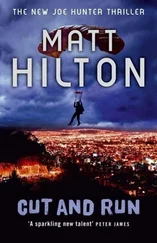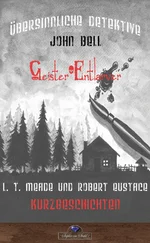The floor was the only quiet surface and so sometimes he lay down upon the scratchy wear of the carpet to put one ear and then the other to the ground. Trying to hear how hearing nothing sounded.
The city was bisected by a freeway reaching from north to south, eighteen hundred miles running head to heel across the country. There weren’t any mountains in this part of the state but there were mountains on this road, farther off in either direction. The road knew the ocean. It knew the greatness of the lakes. The road could take Kelly to Canada or the Deep South or the Atlantic coast. The road could take him home, to a small town two hours north, named for a tree sharing its name with a poison.
Last he’d heard everyone he knew there was still around, except his parents and the other assorted dead. The last time he visited was for his mother’s funeral. All the faces in the church were so old but they were mostly the same faces he’d grown up among. The swishing movements of suit and skirt, of standing and kneeling and standing and sitting in a half-empty church. He’d seen his mother lowered into the ground but hadn’t watched the ground close. The woman he’d been with had wanted to see where he grew up but he’d asked her not to come. They weren’t married but they lived together, owned a house down south. There wasn’t anything to be ashamed of but he didn’t want to answer any questions. He didn’t plan on ever going back again so better to tell his aunts and uncles he was alone.
He had some cousins there, a few lost friends. There wasn’t any juice left. If he went to them it wouldn’t be as their relation but as the stranger he’d become. If there was one thing he needed the zone to teach him it was how to be alone again. Unquestioned and uncharged.
When he awoke disoriented in the strobing dark of the apartment he opened the phone’s map to watch the satellites locate him exactly. First a series of shrinking circles, then a blue light pulsing atop the city. The hated screen, so brightly assuring. This is where I am, he would whisper. This is what I am doing. It was so clean a fact. If the noise in his building or the ringing in his ears wouldn’t let him sleep he lay on his mattress, watched documentaries on the television. There he rediscovered the life on other continents, the wilder world beyond raccoons and squirrels and whitetail deer, the ordinary menagerie of the midwestern states. On-screen, elephants mourned their dead and buried the bones, an alligator waited in a pit of drought and mud for thirst to make the meat stupid. A dung beetle pushed a ball of shit across a desert. You did what you had to do. You organized your life, moved every action into categories and compartments of time and type and task, you looked at your life and you knew who you were: this was worldview, ideology, what you had of either, who you were, who you’d been. Today he was this person, speaking these words, concerned only with this narrow sliver of experience, whatever could be had within the confines of the zone.
There had once been a magnificence to these streets and the evidence of those times was still there, in the zone, in edifices to ideas that had not endured. On many days Kelly saw the endurance of the beautiful, the way the slow degradation of acid rain and other weather could make the zone more lovely, not less. He entered churches where painted crosses faded from the walls, where wind howled some days through stolen stained glass, while on other days birds flitted between the iron braces left behind. The braces waiting for the theft. The pews remaining but the organ pipes long gone. Dust and smatter everywhere, a city’s silt fallen, unswept, a manifestation, the refuse of long-ago prayers. The birds, nesting in the rafters. American gods, American temples, all the evidence anyone needed to indict the temporariness of American belief.
He walked shredded schools lacking students but not piles of serviceable desks, ran his hands along the spines of books left behind, the previous fictions of history. Stories no one wanted to steal. Bottles of printer’s ink lined glassless windowsills, glowed in shafts of sunlight, colored vacant offices blue and red and black and superblue. Locker rooms lay unlocked, the locker doors removed, the opened walls spilling onto gym floors made of century-dead trees, the wax scuffed with shoes and time, tagged with layers of spray paint.
He wandered the rows of emptied houses and overgrown yards, roamed grassy blocks beneath bare-socketed streetlights. In every structure he entered he found some objects trashed and some he could sell and also some rare and better and less-valuable objects, objects abandoned by accident, chance’s castaways. Soon he lifted some new bauble from nearly every site, folded a broken-spined paperback into his pocket, ripped a single pencil-marred Ave Maria from a hymnal, pocketed a child toy’s heavy as lead, a bent-tined fork kicked behind a counter. He brought home some objects he planned to use and some he wanted to look at and in his apartment he chose a cupboard meant for dishes to store these more-useless thefts, an exhibit of his travels in the zone, of what relics had called out in the places he’d been, the bleak houses of the blackout city.
Kelly thought the world wasn’t full of special objects, only plain ones. Nothing was assembled special, nothing and no one, but the plainest objects could be supercharged by attention, made nuclear by suggestion. He could pick up the same object in two different houses and in one sense a completely different thrumming. What he wanted was anything loved. When he couldn’t remember anymore where he had taken something from, then he threw it out. Making emotion last wasn’t the objects’ first power but it was the power he wanted most. Anything he took from someone else’s life wouldn’t work forever but if he kept acquiring more maybe the feelings might remain, transferred across the overlap.
The fall sun shining on the waving grass, the hardy scrub of trees spreading across vacancies. Everywhere he took something he tried to leave something else behind. The unexpected juxtaposition of nature and ruin. Metal for memories, memories for metal. There was so much he wanted gone. There was such a sprawling untenanted city in which to dump it. And in the falling streets he discovered the great perseverance of the people who remained. Their faces shined in the light wherever he saw them, on porches or in driveways, outside liquor stores and bars. He wasn’t their neighbor but he saw their beauty. They looked crazy with grief. The great glory of their sadness. The way it would last and last. He needed to eat and there wasn’t any work but what was he taking from these people. Nothing, he told himself, they had not already lost.
To leave the edge of the zone for its center was to abandon the present for the future and wherever Kelly went he thought he might be the last person to see these sights. Others would come with bulldozers and excavators — or else with arson and theft — but they wouldn’t see how he saw, moving carefully through these rooms and hallways, staring out these windows, marveling at the way you could see the lit skyline of the inhabited city from the endless dusk of its unlit neighborhoods. There were still some progressions in play but he saw how the zone had moved beyond time. Or at least outside of the time marked by digital clocks, smartphone calendars. Inside the zone events moved along paths solar, lunar, seasonal; new geological epochs marked by strata of waste, eras identifiable by the brand names left inside cupboards, by the industrial design of unpowered appliances. A preview of what the world would look like during its coming decline. Kelly pretended he carried the last human gaze door-to-door, window to window, exploring the first outpost of a culture pushed past repair. It could be destroyed but could it be fixed? All the better futures might not arrive. He didn’t think his was the final generation, but perhaps the last might already be born.
Читать дальше












